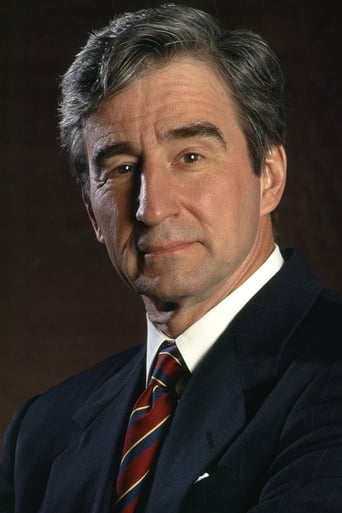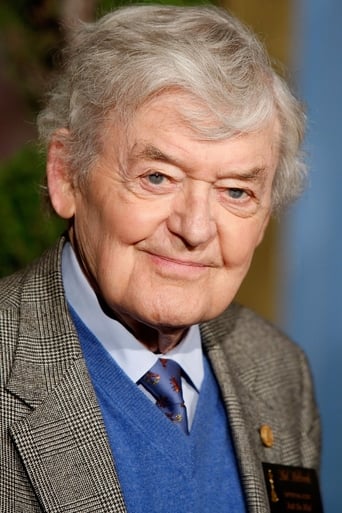Kattiera Nana
I think this is a new genre that they're all sort of working their way through it and haven't got all the kinks worked out yet but it's a genre that works for me.
Intcatinfo
A Masterpiece!
StyleSk8r
At first rather annoying in its heavy emphasis on reenactments, this movie ultimately proves fascinating, simply because the complicated, highly dramatic tale it tells still almost defies belief.
Rexanne
It’s sentimental, ridiculously long and only occasionally funny
bootlebarth
I'm writing this when there are only seven other reviews. Compared with the hundreds or thousands of reviews of popular cinematographic dross (the greater the dross, the more the reviews), is there any point?The Journey of the Corps of Discovery is an amazing story, beautifully told. President Jefferson sends his secretary to find a route to the Pacific Ocean across thousands of miles of largely unknown territory. The adventure proves that truth can be stranger than fiction. This is an epic trip. Ken Burns has made some marvelous series, but none better.There are so many memorable moments that it seems pointless to select a sample. I'll never forget Meriwether Lewis's diary entry on his 31st birthday, rueing his indolence and lack of achievement at what he thought would be the half-way stage of his life.Everyone should see this wonderful series. Unfortunately, the bulk of the popcorn-eating, couch-potato viewing public prefer banality and fantasy to fact. Treat yourself to one of the best series ever.
CitizenCaine
Ken Burns directs this PBS documentary on the expedition taken by Lewis & Clark from 1804-1806 at the behest of then President Thomas Jefferson. The film traces their journey, with nearly 50 expedition party members, northwest from St. Louis across the northern Louisiana Territory, into Oregon Territory, and to the Pacific Ocean and back. The film's composition includes beautiful cinematography and bridging music and the typical voice over narration that we've come to expect from a Ken Burns film. The narration includes commentary by historians and writers as well as excerpts from the actual daily journals of expedition members. The film details the many perilous obstacles they confront along the way, including changing river currents, disease, hostile Indians, lack of direction, lack of shelter, mental and physical fatigue, never-before-seen animal species, and weather changes.It took them two and a half years to complete the journey, without ever finding a northwest passage to the ocean (which, of course, did not exist). However, the film highlights some of the important discoveries they made, such as plotting a map of the undiscovered West, documenting new plants and wildlife, and being able to diplomatically negotiate with different groups of Indians along the way. This is a skill America would later lose sight of. The film spends less time detailing the return journey, but illustrates a few important principles that we like to think of as American today: democratically voting when it was time to make a tough decision for the group, treating others as equals, and remaining steadfast in attempting to achieve goals. There's also a bit of sad irony when the expedition encounters the Nez Perce, if you know American History. The film is exciting and inspiring, without being too reverent. It's quite clear that these men and women faced tremendous hardships, had great courage and luck, and took great risks in making a journey, whose historical significance none of them realized. The journey itself is an extension of the visionary thinking that great, early Americans, like Jefferson, had. It was a journey of a lifetime for them and the journey of the century for the history of the United States. This should be required viewing in every high school History class. ***1/2 of 4 stars.
rrichr
If you have a love of history and the wilderness, and adhere to a certain code, the Lewis and Clark saga can get way under your skin. It certainly got under mine. In fact, it's still there although it doesn't itch quite as much as it once did. If you doubt me, watch writer/commenter Dayton Duncan fight back tears as he recounts Meriwether Lewis' heartbreaking demise in Ken Burns' PBS special on Lewis and Clark. The journey of the Corps of Discovery, as the expedition was entitled, occupies the emotional center of the history of the West in the same way that the Civil War occupies the specific history of the South. More than a few people now living would be tempted to sell their souls for the chance to jump back to 1804 and push off up the Missouri River with the Corps. Only the infected will understand.Actually, I have Dayton Duncan to blame for my infection. I picked up his book, `Out West', a chronicle of his attempt to retrace some of the Lewis and Clark Trail (in a VW bus) at a yard sale and acquired the bug. From then on, any Lewis and Clark site had to be seriously out of the way from me to not attempt a visit. When I stood at Lewis' grave in rural Tennessee, reputedly on the spot where he died, I can't lie. I was moved. (I still want to see the site of the Two Medicine Fight, in which Lewis and his detachment, which had split off from the main party on the return journey, had been forced to kill two Blackfoot warriors; the only two Native Americans to die at the expedition's hands. It was an act for which the stratospherically-principled Lewis paid in kind (he was accidentally shot and severly wounded by one of his own men while hunting not long after the fight (unmentioned in the series); a pity as this sub-expedition was largely unnecessary.)Despite its suave production, enchanting music track and heartfelt commentary by various historians including the late Stephen Ambrose, Ken Burns' rendering of the Lewis and Clark tale is just adequate historically. This is not to say I didn't like it. I thoroughly enjoyed it, both my initial viewing and a recent repeat broadcast. But there is so much more meat on the bones of this great adventure than the series was able to bite off. Anyone coming away from it with a case of the bug should definitely learn more. Allow me to suggest a course of action.Much information resides on the Web but will often not tell you much more than the PBS production. Still, these sites can be fun. But don't be afraid to go analog as well. Find a good book or two on the subject.They're out there and will serve up more details. My favorite (out of print but still findable in a good bookstore or library) is `Lewis and Clark: Partners in Discovery' by John Bakeless. Here, you'll acquire a detailed, sensitive account of not only the expedition itself, but of the childhood and coming of age of Lewis and Clark, their experience as army officers on the frontier (then in Ohio) that laid their foundation as incomparable woodsmen, how the expedition was planned and outfitted, and what became of the many of its members after the return. Bakeless also makes a haunting and persuasive case for the possibility that Lewis did not commit suicide but may have been murdered; something I have always thought possible, certainly along the Natchez Trace, which in 1809 was probably the most dangerous place in North America. (This excellent book really should be re-printed for the bicentennial.)Another interesting book (also out of print) is `Two Captains West' by Albert and Jane Salisbury. Not as scholarly as the Bakeless, it's still a worthy read and filled with photos of many actual Lewis and Clark sites, including some that are less well-known and, thereby, even more interesting to buffs. Once you've acquired a workable overview of the expedition, take the plunge into the actual journals that were compiled along the way by the Captains. At least two editions are extant, the most accessible being the abridged version by Bernard DeVoto, based on the original, complete journals (seven volumes and maps) published by Reuben Gold Thwaites in the early 1900's. At first, you may find the language challenging but eventually it will charm you. Then, go back to the PBS production for dessert. However, if you have not visited at least a couple of sites, I'm not sure we can call you a true buff. But once you're through DeVoto, your application for membership will be considered. And don't forget the aforementioned Dayton Duncan book.You'll like it.A few months back, some soulless MBA-type did an article for the equally soulless e-zine, Slate, in which he disclaimed the importance of Lewis and Clark because they failed to find the Northwest Passage. This is rubbish, of course. The Passage was never there. How could the expedition have failed by not finding it? The importance of the Corps of Discovery lies not what it did, (which is still remarkable, Lexus Boy), but in what it symbolizes, what it says about the enormous promise that America once embodied, and the tough, resourceful people we once were. It speaks to a time when it was still not too late to rationally and humanely inhabit a world of profound beauty and natural harmony; a world in which the civil and hospitable Mandans, the incredibly noble Nez Perce, and even those pesky Teton Sioux and Blackfeet, all with knowledge to impart, had a place. We have actually fallen far, only to make temporary soft landings in our Lincoln Navigators. Lewis and Clark were geniuses, not of academia but in how they, and their command, manifested intelligence, compassion, and courage, often in the face of hardship we can barely imagine.
mlehr
Beautiful Cinematography. Excellent narration. Inspiring. What a Journey !!!






